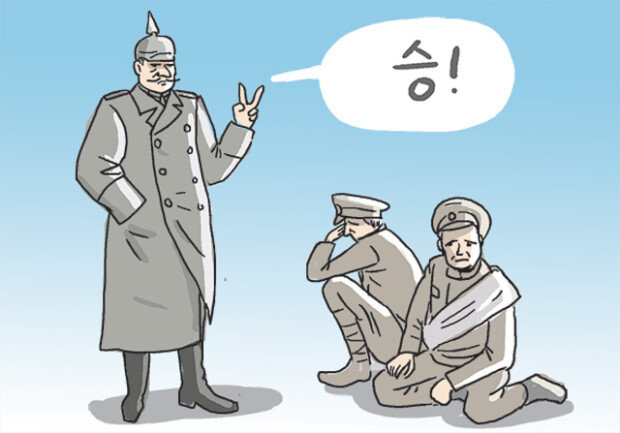Battles that changed history
Battles that changed history
Posted June. 16, 2020 07:47,
Updated June. 16, 2020 07:47

One can think of many battles when it comes to battles that changed the course of history. If Julius Caesar had lost the Battle of Alesia, Rome had failed to conquer Gallia, the Battle of Waterloo had ended with Napoleon’s victory, and the Confederates had won the Battle of Gettysburg, the United States as we know would not have existed but instead have been divided into different countries. Back to the reality, there is one crucial battle that shaped the fate of the 20th century. It is the Battle of Tannenberg fought between Russia and Germany in August 1914. Despite their inferiority in number, the German troops annihilated the Russian troops.
The German army knew that there was no cooperation between the Russian First Army and the Russian Second Army. The Germans engaged in a skirmish against the Russian First Army and sent most of its forces to the Russian Second Army. The attack by the German army resulted in the complete destruction of the Russian Second Army and the suicide of its commanding general, Alexander Samsonov. The remaining Russian First Army gave up the battle and made a withdrawal, and as many as 95,000 Russians were held captive. This crushing defeat served as a catalyst for the Russian Revolution. On the other hand, the German commander Paul von Hindenburg became a national hero and was elected as the president of Weimar Republic. Some say if not for Hindenburg, there would be no Hitler. If so, there is no question that the Battle of Tannenberg changed the fate of the 20th century.
The German army’s bold tactic gave birth to many legends. But it was the Russian army that made the victory by the Germans possible. The Russians’ strategy was not bad at all. But it was not realistic. The Russian army was not ready to implement their strategy and did not know the problems that may arise during the process. The Germans, on the other hand, discovered the problems through constant training and learned the skills needed to execute their tactic. It was as if the Germans turned a bog iron into a knife by learning the smelting and casting skills while the Russians used a bog iron, imagining a knife in their head. Ideal is something that needs to be melted in fire called reality and polished in order to turn it into a product.







